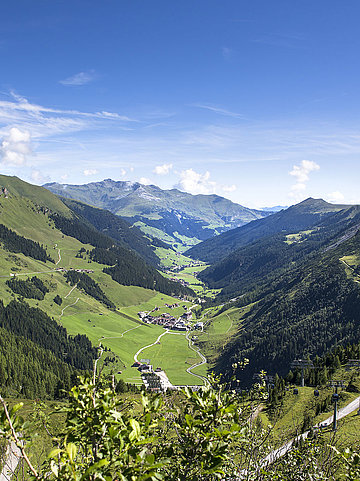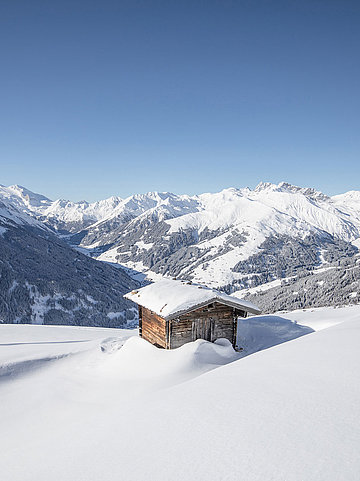Your Tuxertal
Tux. Stories with faces
A Celtic name. Roman coins. And a mine that brought prosperity. Our Tuxertal is not only full of natural beauty, but also history. People were in this area already 7000 years ago. This is demonstrated by hornstone findings. Also ancient Romans left their traces here in the form of a golden coin that was found at the Tuxer Joch. Tux was documented the first time in 1257, but the name is much older. Tux most likely comes from “tukkes” which essentially means “wild water” in Celtic. People lived from agriculture in Tuxertal for hundreds of years. In the 1920s, a magnesite mine brought prosperity and an upswing to this poor valley. Your host Alexander Erler will be happy to tell you personally about how everything then changed with the construction of the first funicular. There are so many stories about Tuxertal. When will you write yours?
Worth seeing in Tux:
Magnesite and courage
Until the early 1920s, Tux was a place that was not really connected with the world. Which made poachers of course very pleased. With the meat and fur of the slain animals they were able to secretly make some money. Money was always short in Tuxertal. Some years, farmers found it very difficult to make ends meet. Many left the valley to find a livelihood far away. Then everything changed in 1923 for the people of Tux. A magnesite mine was opened in Stockwiese in the fraction of Vorderlanersbach. With it soon came workshops, canteens, grocery stores, a doctor's office, a school and even a cinema. More than 400 people found work. Those who otherwise would have had to leave could now remain in their beloved homeland…den Arbeit. Jene, die sonst hätten gehen müssen, konnten nun in ihrer geliebten Heimat bleiben…
This short reading passage is part of our Eden booklet.


